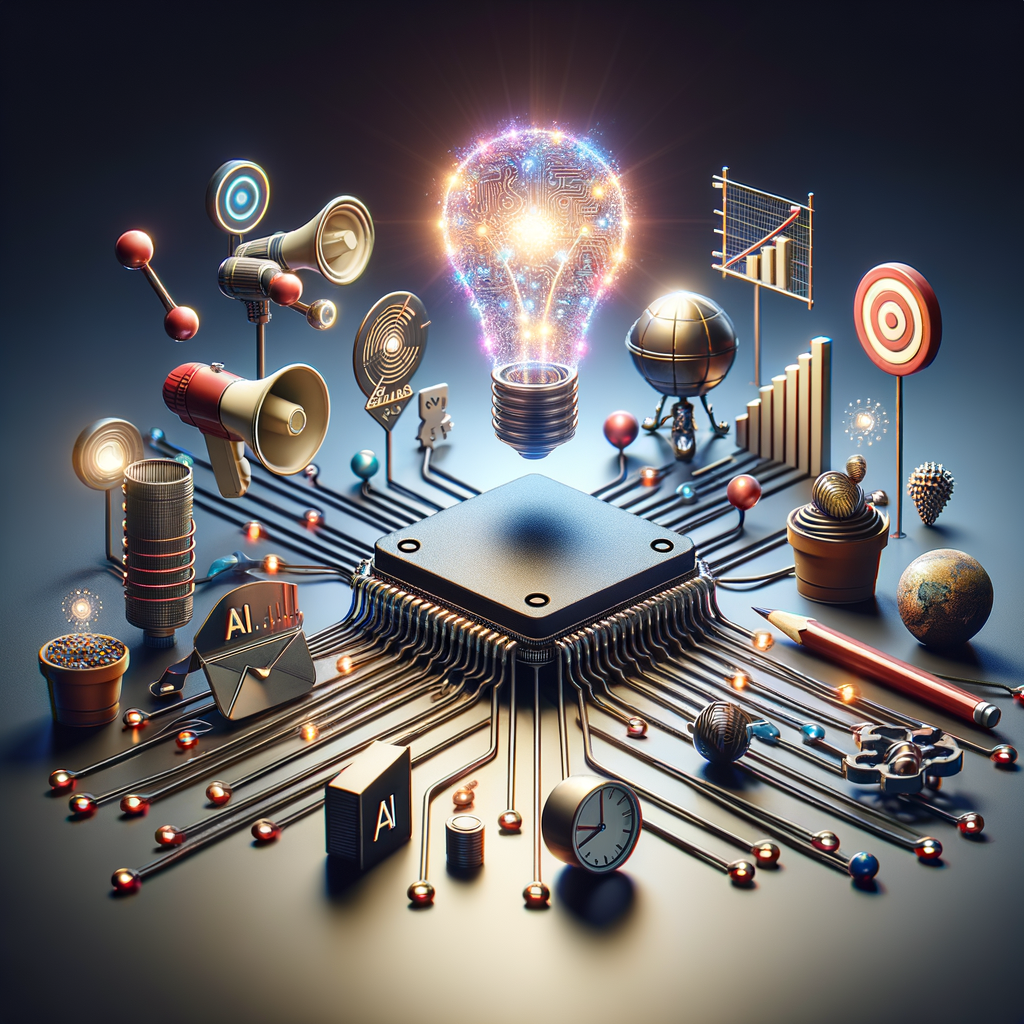In the fast-paced world of digital marketing, staying ahead of the curve is critical for businesses looking to maintain a competitive edge. Artificial Intelligence (AI) is not just a buzzword anymore; it has become a transformative force, revolutionizing how companies approach marketing strategies. From predictive analytics to personalized customer experiences, AI is reshaping the marketing landscape in ways that were unimaginable just a few years ago.
The Evolution of AI in Marketing
AI has evolved from a futuristic concept to a practical tool that is now accessible to businesses of all sizes. Initially, AI was used primarily in data analysis, allowing companies to process vast amounts of information faster than any human could. Today, AI’s role in marketing is more dynamic, encompassing everything from automating routine tasks to providing deep insights that drive decision-making.
1. Predictive Analytics: Foreseeing Trends Before They Happen
One of the most impactful ways AI is revolutionizing marketing is through predictive analytics. By analyzing historical data, AI can identify patterns and predict future trends with remarkable accuracy. This allows businesses to stay ahead of the curve by anticipating customer needs and market shifts before they happen.
Golden Nugget: Predictive analytics can increase marketing ROI by up to 30% by enabling more accurate targeting and resource allocation. Companies like Netflix use AI-driven predictive analytics to suggest content based on user behavior, significantly enhancing user engagement and retention.
2. Personalized Customer Experiences at Scale
Personalization has always been a cornerstone of effective marketing, but with AI, it’s taken to a whole new level. AI algorithms can analyze user behavior, preferences, and past interactions to deliver highly personalized experiences across all touchpoints. Whether it’s personalized email campaigns, product recommendations, or dynamic website content, AI makes it possible to cater to individual customer needs at scale.
Golden Nugget: Salesforce reports that 57% of consumers are willing to share personal data in exchange for personalized offers or discounts. Leveraging AI for personalization not only improves customer satisfaction but also increases conversion rates.
3. Automating Mundane Tasks: Freeing Up Human Creativity
AI excels at automating repetitive tasks, such as data entry, customer segmentation, and social media scheduling. This automation frees up valuable time for marketers to focus on creative and strategic initiatives. Tools like HubSpot and Marketo use AI to automate email marketing workflows, allowing businesses to nurture leads more efficiently.
Golden Nugget: Automation can lead to a 14.5% increase in sales productivity and a 12.2% reduction in marketing overhead. The time saved can be redirected towards more creative efforts, such as campaign design and content creation.
4. Enhancing Content Creation and Curation
AI is also making waves in content creation and curation. While AI-generated content is still in its infancy, it is already being used to produce news articles, social media posts, and even product descriptions. Moreover, AI tools can curate content by analyzing trending topics and identifying what type of content resonates best with target audiences.
Golden Nugget: AI can analyze up to 300% more data than humans, allowing it to identify content trends faster and more accurately. Tools like BuzzSumo and Clearscope use AI to help marketers create content that is both relevant and engaging, based on real-time data insights.
5. Optimizing Ad Spend with Programmatic Advertising
Programmatic advertising, powered by AI, automates the process of buying and placing ads, targeting the right audience at the right time with precision. AI algorithms analyze user data to determine the most effective ad placements, optimizing ad spend and increasing ROI. This approach ensures that marketing budgets are used efficiently, reaching the most relevant audience with minimal waste.
Golden Nugget: Programmatic advertising is expected to account for over 90% of all digital display ad spend in the U.S. by 2026. Companies that leverage AI in programmatic advertising are seeing higher engagement rates and better return on investment.
6. Real-Time Decision Making with AI
AI enables real-time decision-making by processing and analyzing data as it is generated. This capability is crucial in today’s fast-paced digital environment, where timely responses can make the difference between converting a lead and losing a customer. AI-driven tools can adjust marketing strategies on the fly, ensuring that campaigns remain relevant and effective.
Golden Nugget: Real-time AI-driven marketing strategies can increase conversion rates by up to 25%. This immediate adaptability allows businesses to respond to market changes and customer behavior instantaneously.
Conclusion
AI is no longer a futuristic concept but a critical tool for businesses looking to stay competitive in the modern marketplace. By leveraging AI for predictive analytics, personalization, automation, content creation, programmatic advertising, and real-time decision-making, companies can significantly enhance their marketing strategies. The future of marketing is undeniably AI-driven, and businesses that embrace this technology will be well-positioned to lead in their industries.
As AI continues to evolve, so too will its applications in marketing, offering new opportunities for businesses to connect with customers in more meaningful and impactful ways. The key is to stay informed, be adaptable, and always look for ways to integrate AI into your marketing strategy to stay ahead of the competition.

